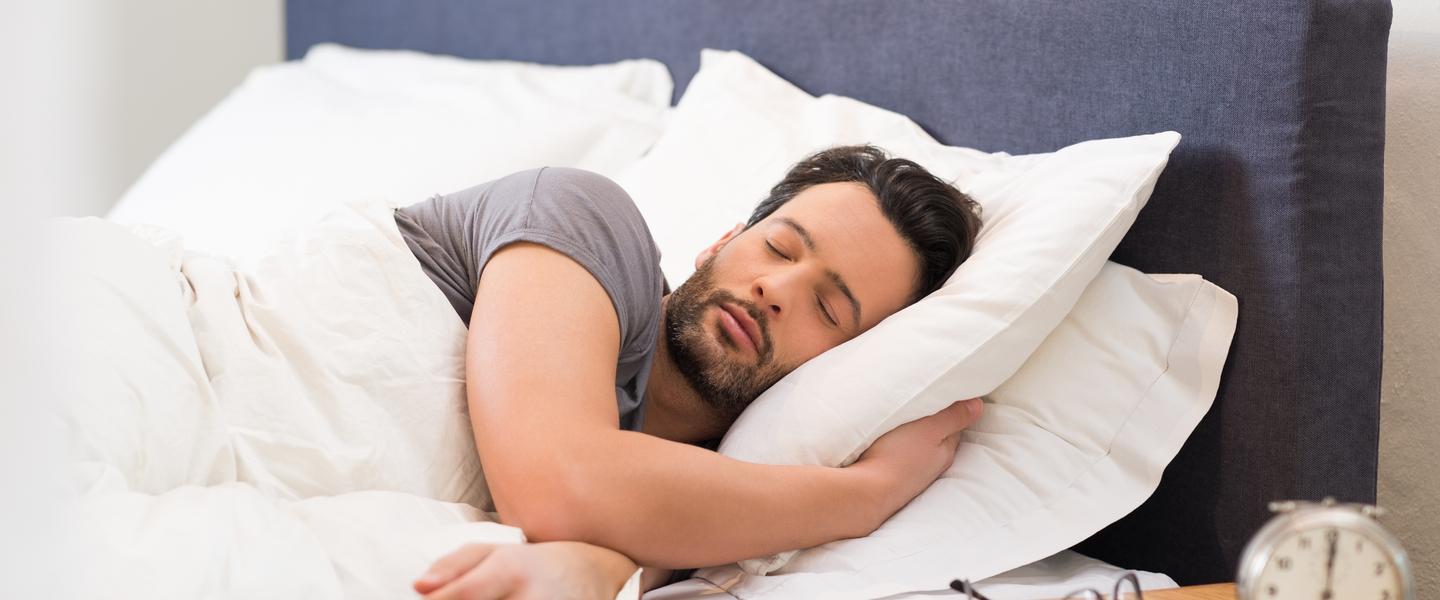Best Sleeping Positions for Breathing Problems
Airflow is more important than you think when sleeping. Finding the best sleeping position and pillows dramatically affects your sleep quality. Not to mention the importance of ensuring the person sharing your bed isn't bothered by your snoring!
There are indeed some items that can aid with sleep apnea, but finding the best sleep position is the ideal way to ensure a healthy amount of airflow to adjust breathing patterns when sleeping.
On top of that, neck pain can keep you tossing and turning for hours, so let us find the best sleeping position to address all these issues for a comfy night’s sleep.
1 - Sleeping on your left side
The left side has many health benefits, including promoting internal organ health. Sleeping on your left side ensures the liver isn’t bearing the body's weight and promotes healthy blood flow.
Most importantly, sleeping on the left side in a fetal position allows a healthy airflow throughout the respiratory system. As a result, sleep apnea is countered as opposed to other sleep positions that could impede a healthy flow of air.
Pregnant women can benefit from sleeping on their left side in a fetal position with a pregnancy pillow, as the entire body is relaxed. To reduce shoulder pain, alternate to the right side for a short while and then back to your left side for better sleep quality.
Explore our pillows for side sleepers for some great options to improve your sleep.
2 - Sleeping on your back
There is nothing wrong with sleeping on your back. Some people might argue that this position makes sleep apnea symptoms worse and could lead to sleep paralysis. However, some people can get more air flowing by adjusting to sleeping on their backs.
For example, some pillows keep your head elevated, which could help reduce shortness of breath when sleeping. Finding the perfect elevation angle for your body type has proven helpful to many people struggling with breathing problems.
Discover our range of pillows for back sleepers to find the perfect bedding for your sleep position.
3 - Sleeping on your stomach
As you might have noticed, sleeping flat on your back might not be the best idea. At times, an elevated position might not be practical. By sleeping on your stomach, you can ensure spinal health.
Use a supportive pillow under the abdomen to take pressure off the spine. This position allows air to circulate freely throughout the body. At the same time, the respiratory tracts can dilate and constrict enough to minimise sleep apnea. Change positions by sleeping on the left side or moving the pillow up to elevate your head a bit.
Oxygen levels are bound to remain at adequate levels, and you have the flexibility of switching to different positions throughout the night.
Have a look at our pillows for front sleepers for more bedding options to improve breathing during sleep.
Other things which could be impacting your sleep
Just as there are best practices for getting enough oxygen throughout the night, there are some habits to avoid to ensure your internal clock is not disturbed by inadequate oxygen levels.
Exposure to allergens
Sleeping positions are crucial for enough airflow to the lungs, but the issue might sometimes seem out of your control. Many allergens have a direct impact on breathing problems throughout the night. For example, pet dander, dust mites and pollen could trigger nasal congestion and irritate the respiratory system.
Avoiding such triggers in the bedroom could prove to be very helpful when it comes to handling breathing problems at night. Using anti-allergy bedding can help to improve your sleep.
Decreased cortisol levels
An unpopular fact is that cortisol levels directly impact breathing patterns. The adrenal glands release more cortisol and adrenaline when stressed out. As a result, these chemicals affect the respiratory rate. Although these chemicals might have a mild effect on some people, patients suffering from underlying lung problems might bear their full brunt.
You can minimise these effects by eating a whole-food and plant-based diet. Supplements are also beneficial and could reduce stress levels significantly. But on the other hand, simple lifestyle changes such as regular exercise are more than enough to counter these chemical reactions.
Dry or cold air
Any significant adjustments to the quality of air surrounding you have adverse effects on nasal passages if you have difficulties when breathing. When sleeping, endeavour to have a consistent flow of air close to room temperature. Avoid excessive exposure to dry or cold air.
How to get better sleep with your breathing problem
Finding better sleeping positions is pivotal when it comes to minimising breathing problems. However, there are some additional measures you can take that contribute to a good night's sleep.
Take a hot shower or bath
Taking a hot shower or bath before bed allows you to relax and relieve any stress from a long day at work. Unwinding in the shower after a stressful day relaxes the adrenal glands and thus reduces its effects on breathing patterns. Since chemicals secreted by the adrenal glands affect the respiratory system, resting is essential to easing your respiratory system.
For those who prefer a bath over a shower, add some bath salts to relax before retiring for the day.
Use anti-allergy bedding
Anti-allergy bedding is a proven technique for reducing allergens on your bed. In addition, hypoallergenic bedding helps you breathe freely throughout the night without any allergies irritating the nasal passages.
People suffering from allergies will benefit from using anti-allergy pillows and pillow protectors, especially pet owners that don't want pet dander raining down on their sleeping parade.
Use the right pillow
It may seem obvious, but it’s important you’re using the right pillow for your preferred sleeping position. Otherwise, you’ll likely compromise your comfort as you sleep.
If you suffer from snoring, then the Slumberdown Anti Snore Pillow is a great option. This pillow is specifically designed to relieve the symptoms of snoring, improving rest for you and anybody else sharing the bed.
The hollowfibre pillow features an S-shaped inner foam core and a 100% breathable cotton cover for a perfect night’s sleep.
Wash bedding every week
Not only does washing all bedding linen at least every week contribute to hygiene, but it also reduces the risk factor of different allergens impacting your sleep.
There are so many allergens that cling to your bedding, especially for pet owners. Washing bedding linen will pay back in abundance by improving sleep quality.
Keep your room dust-free
Dust mites are not your friend! Keep them away at all costs. Although you might be washing your bedding each week, try to look for other reasons for dust mites to visit your humble abode. That includes any furnishings or rugs in the bedroom that could be hosts for these gnarly foes.
Make it a goal to frequently vacuum and clean the mattress and any other surfaces prone to dust mites. Doing so will reduce the risk factor of allergies that lead to shortness of breath or otherwise jeopardise sleeping patterns.
Explore our pillows at Sleepseeker to improve your sleep
Help to improve your sleep with our bedding at Sleepseeker. We offer a range of duvets, pillows, mattress toppers and mattress protectors which are perfect for all sleeping positions.
Read some of our other guides for more sleep advice:
What's trending now...
-

Slumberdown Super Support Firm Support Side Sleeper Pillow, 2 Pack
£17.00
Shop Now -

Slumberdown All Seasons Combi 15 Tog (10.5 + 4.5 Tog) Double Duvet
£30.50
Shop Now -
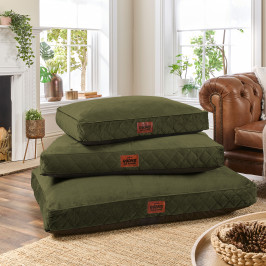
Slumberdown Paws for Slumber Olive Green Pet bed, Medium
£39.00
Shop Now -

Slumberdown Wonderful Wool Mattress Topper
From: £54.50
Shop Now -

Slumberdown Paws for Slumber Extra Large Pet Bed Spare Cover, Grey
£20.00
Shop Now -
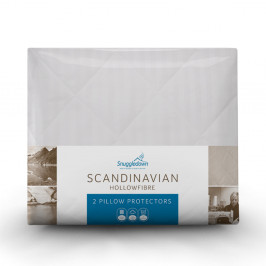
Snuggledown Scandinavian Hollowfibre Pillow Protector - Pack of 2
£15.00
Shop Now -

Slumberdown Waterproof Mattress Protector - Double
£17.50
Shop Now -

Slumberdown Wonderfully Warm Electric Blanket - Single
£60.00
Shop Now -

Slumberdown Unwind Outside 2-in-1 Waterproof Cocoon Set, Burnt Orange
£30.00
Shop Now -
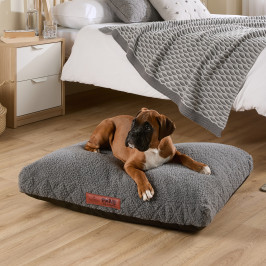
Slumberdown Paws For Slumber Sherpa Pet Bed, Medium
From: £25.00
Shop Now -

Slumberdown Super Support Firm Support Side Sleeper Pillow
From: £17.00
Shop Now -

Slumberdown All Seasons Combi Duvet
From: £25.50
Shop Now -

Slumberdown Paws for Slumber Medium Pet Bed
From: £39.00
Shop Now -
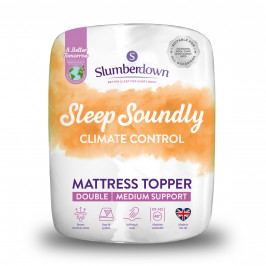
Slumberdown Sleep Soundly Climate Control Mattress Topper, Double
£33.50
Shop Now -

Slumberdown Paws for Slumber Extra Large Pet Bed Spare Cover
From: £20.00
Shop Now -
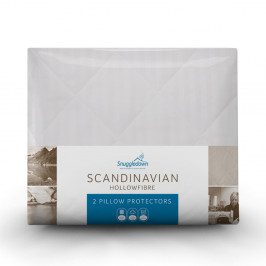
Snuggledown Scandinavian Hollowfibre Pillow Protector
From: £15.00
Shop Now -

Slumberdown Waterproof Mattress Protector
From: £16.00
Shop Now -
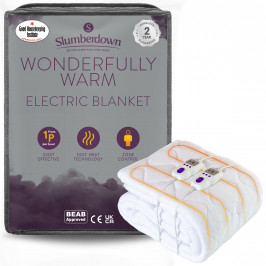
Slumberdown Wonderfully Warm Electric Blanket
From: £60.00
Shop Now -

Slumberdown Unwind Outside 2-in-1 Waterproof Cocoon Set
From: £30.00
Shop Now -
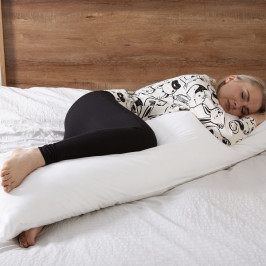
Slumberdown Body Support Pillow, 1 Pack, Includes 100% Cotton Pillow Case
£20.00
Shop Now -

Slumberdown All Seasons Combi 15 Tog (10.5 + 4.5 Tog) King Size Duvet
£34.00
Shop Now


